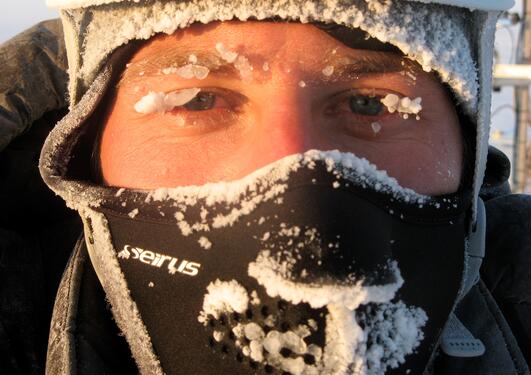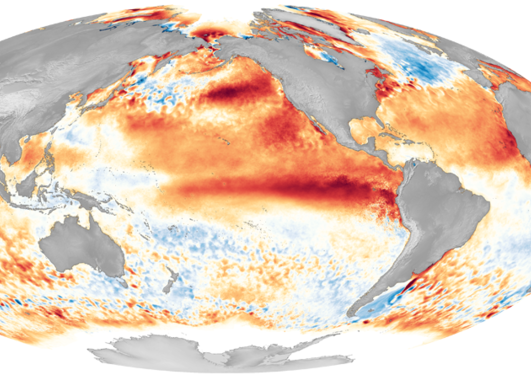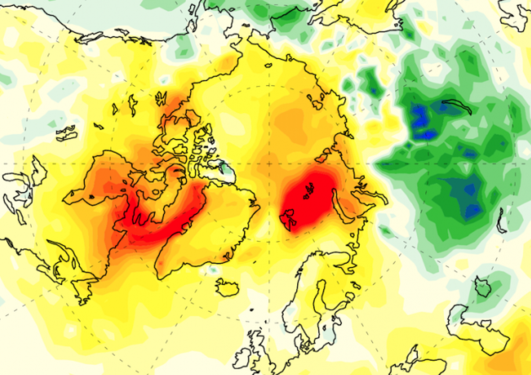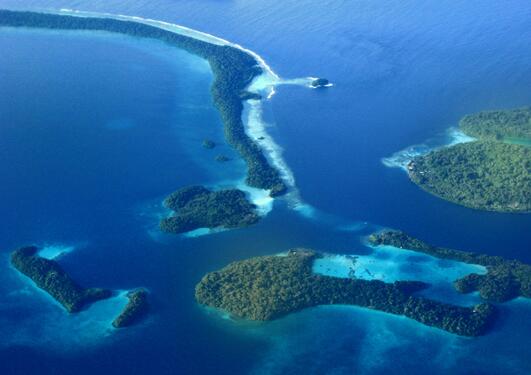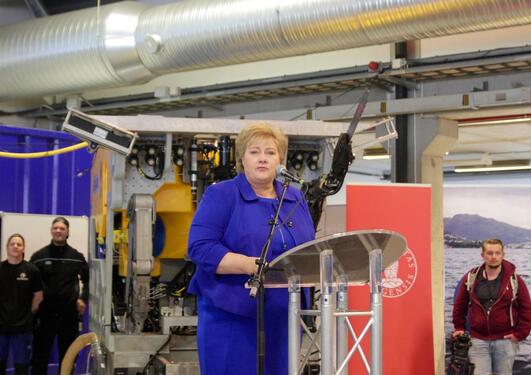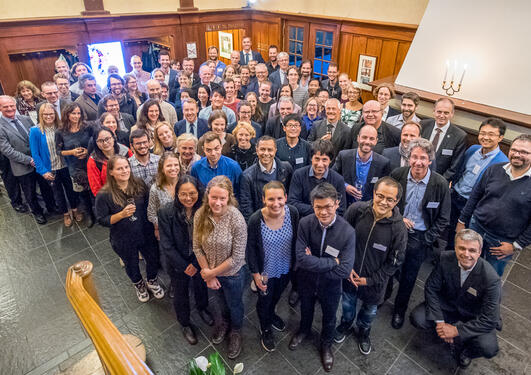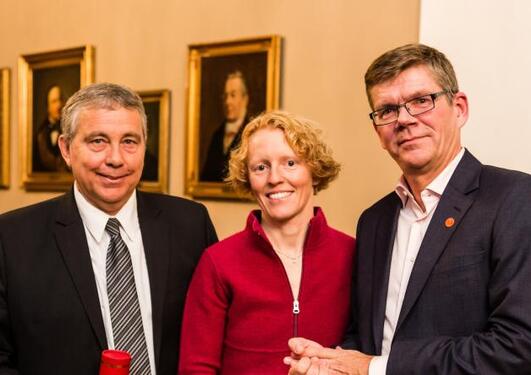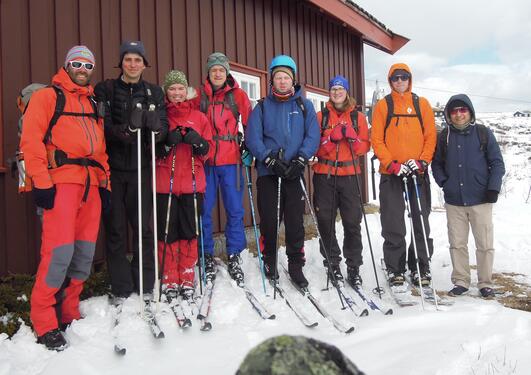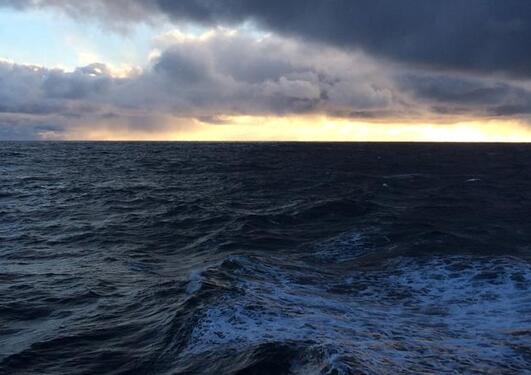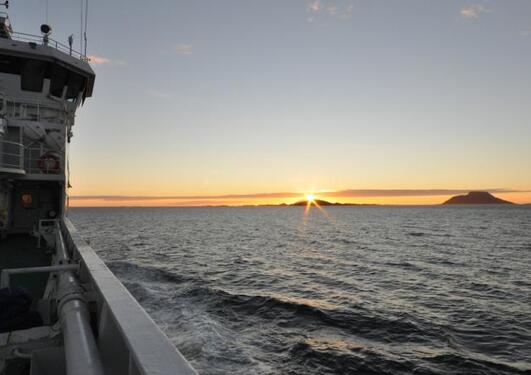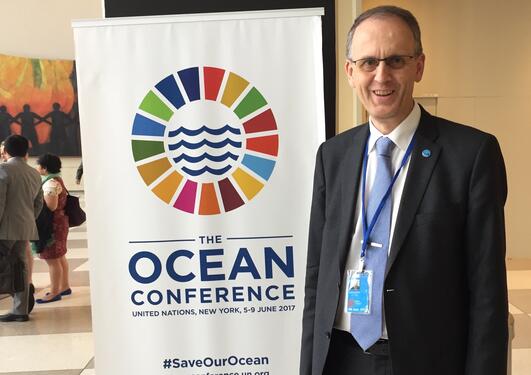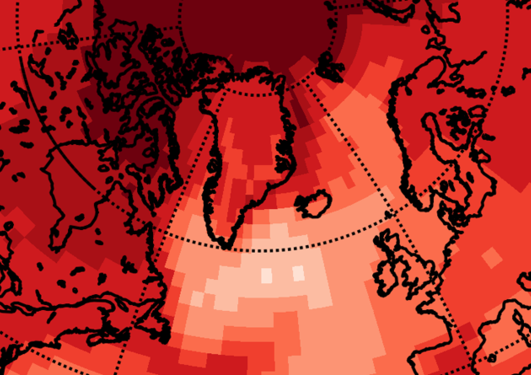News archive for Geophysical Institute
Climate researcher Hans Christian Steen-Larsen has for many years explored some of the most extreme environments on Earth, in his search to improve our climate models. If he succeeds with his new ERC-project, it will have great impact on todays climate research.
Sea surface temperature in the distant tropical Pacific can influence November weather in Europe.
A long debate of the role of the sea ice and the winter temperatures in Eurasia has got a new contribution. Probably no connection, a new study says.
On TV weather maps we see low pressure centers as circles resembling tree-rings, with long tails of red warm fronts and blue cold fronts. But what came first – the low or the fronts?
Social anthropologist Edvard Hviding is one of three University of Bergen researchers to receive five years of major funding from the prestigious Toppforsk programme, awarded by the Research Council of Norway, for his project Mare Nullius.
Norwegian Prime Minister Erna Solberg has established an international high-level panel for a sustainable ocean economy. The University of Bergen looks forward to being part of this marine effort and contribute with scientific advice.
The Geophysical Institute is a hundred years in 2017. In October, the centenary was celebrated with a scientific symposium on climate, energy and geophysics.
She’s both a groundbreaking computer scientist and an excellent teacher; and now she’s awarded the Teaching Prize at the Faculty of Mathematics and Natural Sciences.
On Fridtjof Nansen's birthday, Elin Darelius was awarded by the Fram committee for her polar science, shared with Jan Inge Faleide at UiO.
When the sad April weather became unbearable, six students went to Ustaoset at the far end of Hardangervidda one week after Easter, together with Professor Thomas Spengler and Course Assistant Sunil Kumar Pariyar, to hold a seminar in Mesoscale Dynamics with special focus on mountain meteorology.
That the ocean slows down global warming by absorbing CO2 from the air, is pure chemistry. But to find out how much, you have to know how the ocean moves. Friederike Fröb's PhD shows that both weather and ocean currents play a role.
Friederike Fröb defends on Tuesday, 27th of June 2017 her PhD dissertation at the University of Bergen with the title: “Climate controlled mechanisms of subpolar North Atlantic carbon uptake”.
The ocean predicts future northwestern European and Arctic climate, finds a new study in Nature Communications.
Professor Peter M. Haugan has long participated in high level work in the United Nations, building partnerships between science and diplomacy.
The distrution of a radioactive Thorium isotope is important in multiple aspects of oceanograpy. In his new single author publication, Yiming Luo has revisited the issue on processes influencing the distribution in the water column.
Climate change in the Arctic and the Antarctic was the topic when around sixty scientists from Japan and Norway gathered in Bergen this week.
An Express overview over 20 recent Polar Science articles from Bergen was presented on May 10.
Ocean heat transport links subpolar and Arctic warming, but that is not the whole story, writes Aleksi Nummelin. Read his account of how he, Camille Li and Paul Hezel worked to solve a climate riddle.
Pages
- April 2025 (1)
- March 2025 (1)
- February 2025 (4)
- October 2024 (1)
- September 2024 (2)
- August 2024 (1)
- April 2024 (3)
- November 2023 (1)
- October 2023 (1)
- June 2023 (2)
- March 2023 (1)
- January 2023 (3)
- June 2022 (1)
- April 2022 (1)
- March 2022 (1)
- January 2022 (1)
- November 2021 (1)
- June 2021 (1)
- March 2021 (1)
- February 2021 (1)
- September 2020 (2)
- August 2020 (2)
- January 2020 (2)
- December 2019 (1)
- November 2019 (1)
- October 2019 (4)
- August 2019 (2)
- July 2019 (2)
- June 2019 (1)
- May 2019 (4)
- April 2019 (2)
- March 2019 (3)
- February 2019 (1)
- January 2019 (5)
- December 2018 (2)
- November 2018 (1)
- October 2018 (2)
- September 2018 (3)
- August 2018 (1)
- July 2018 (1)
- April 2018 (2)
- March 2018 (2)
- February 2018 (2)
- January 2018 (1)
- October 2017 (3)
- September 2017 (1)
- June 2017 (6)
- May 2017 (2)
- April 2017 (1)
- March 2017 (1)
- February 2017 (2)
- December 2016 (2)
- November 2016 (2)
- October 2016 (1)
- September 2016 (4)
- August 2016 (1)
- June 2016 (1)
- May 2016 (2)
- April 2016 (1)
- February 2016 (1)
- December 2015 (1)
- November 2015 (1)
- May 2015 (1)
- January 2015 (1)
- December 2014 (1)
- October 2014 (1)
- September 2014 (1)
- August 2014 (1)
- June 2014 (1)
- March 2014 (2)
- February 2014 (1)
- December 2013 (1)
- November 2013 (1)
- October 2013 (1)
- August 2013 (1)
- November 2012 (1)
- October 2012 (1)
- September 2012 (1)
- August 2012 (1)
- February 2011 (4)
- January 2011 (2)
- October 2009 (2)
- January 2009 (1)
